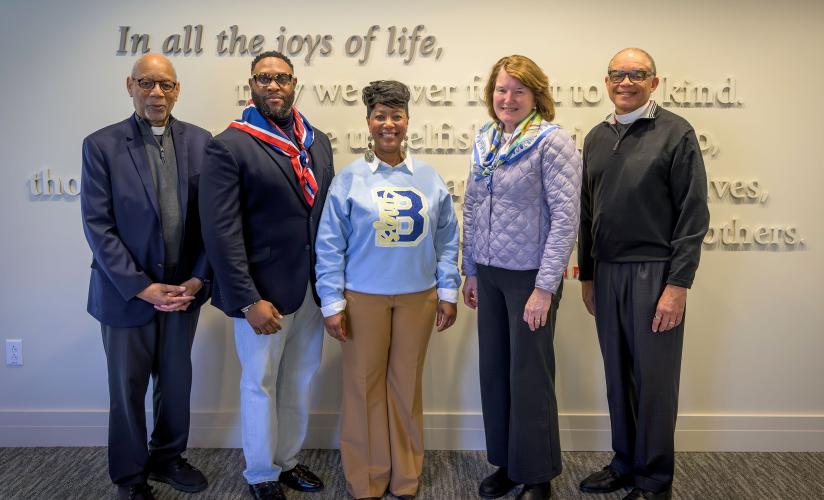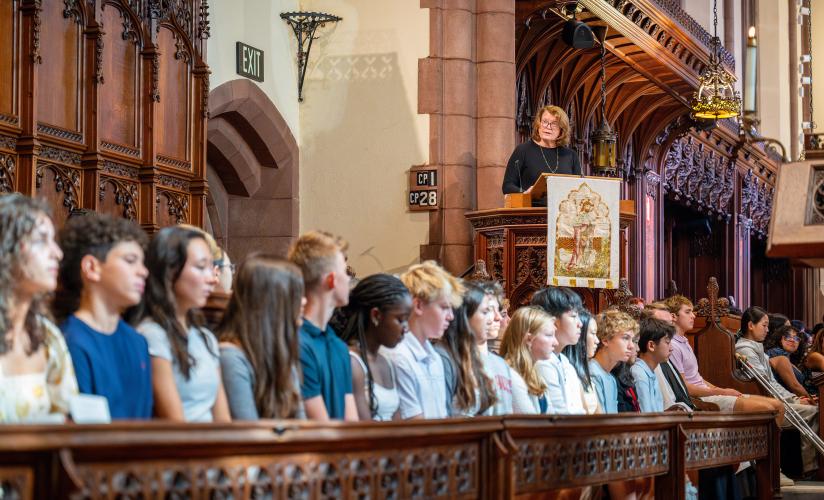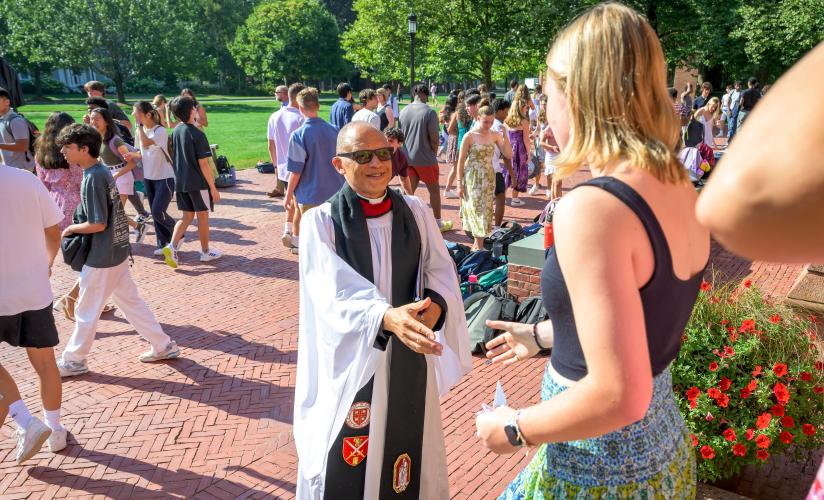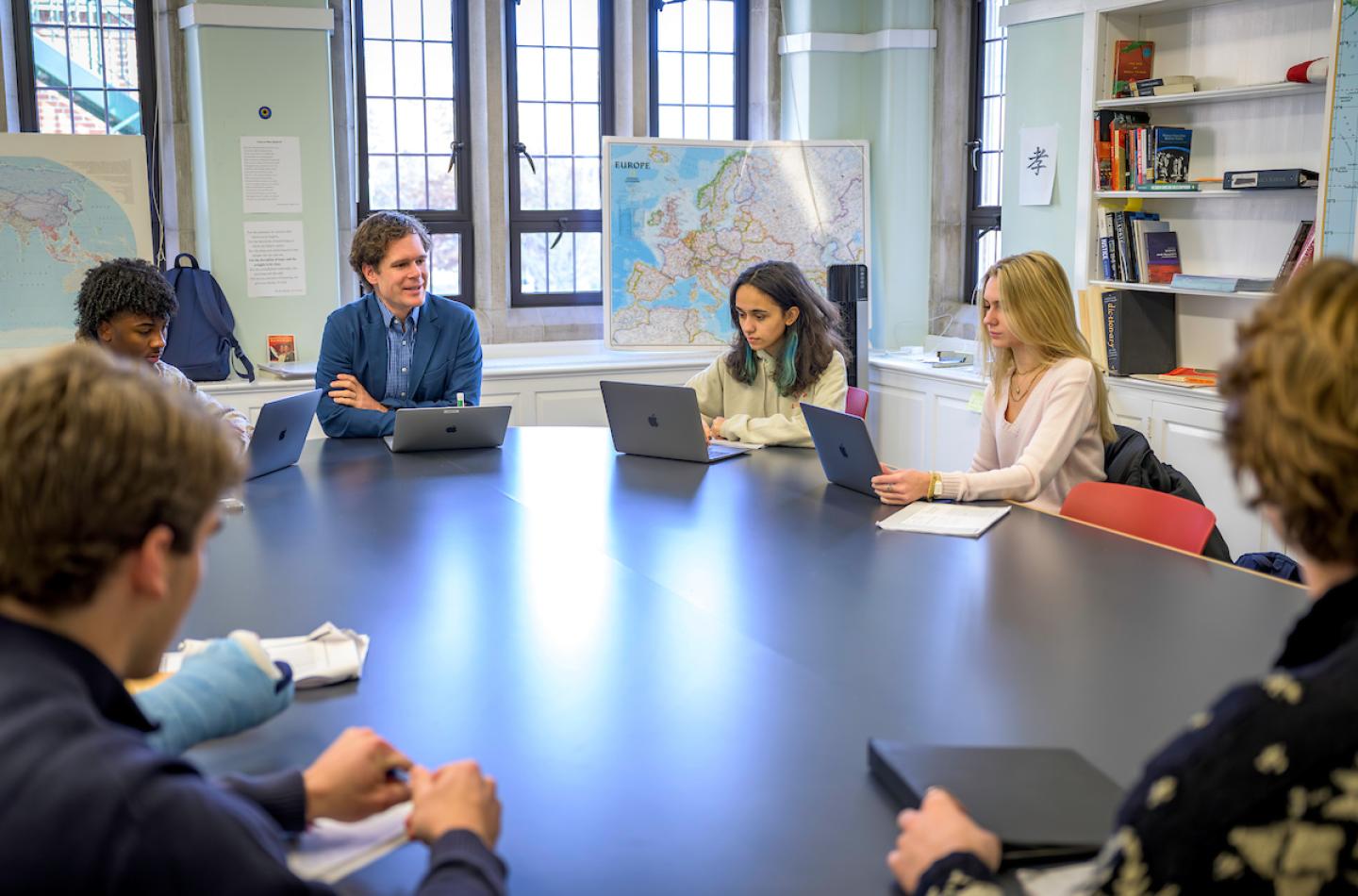

For Chaplain and Humanities Teacher Sam Lovett, one role strengthens the other.
BY JACQUELINE PRIMO LEMMON
As students walked into the Rev. Samuel Lovett’s Schoolhouse classroom one morning early in the Winter Term, they were met with the swelling notes of the iconic score from the 1968 movie “2001: A Space Odyssey.” There was also a slide on Lovett’s whiteboard: a description of Zoroastrianism, one of the world’s oldest organized faiths.
The disparate media weren’t there in error. Instead, they were an illustration of the duality at the core of Lovett’s new humanities elective, Speculative Fiction: Eden to Earthseed, a course he designed and is teaching for the first time this year.
“I had the idea for developing a speculative fiction course while teaching our Science, Philosophy and Religion elective,” he explains. “My hope was that Eden to Earthseed could become a literary version of this philosophy course, investigating through fiction how religion and science have related to each other over time. I hope students will come away … as inspired readers who can apply the ethical questions we encounter to all their other courses, and world events.”
The grandson of the Rev. Sidney Lovett Jr. ‘46, Lovett has been at St. Paul’s School since 2020. He’s now in his fourth year teaching the core course Humanities V as well as a rotating series of religion electives that includes Religion, Race and Gender. One of three School chaplains, Lovett also works with both his colleagues and the student Chapel Council to plan the four-mornings-a-week chapel program.
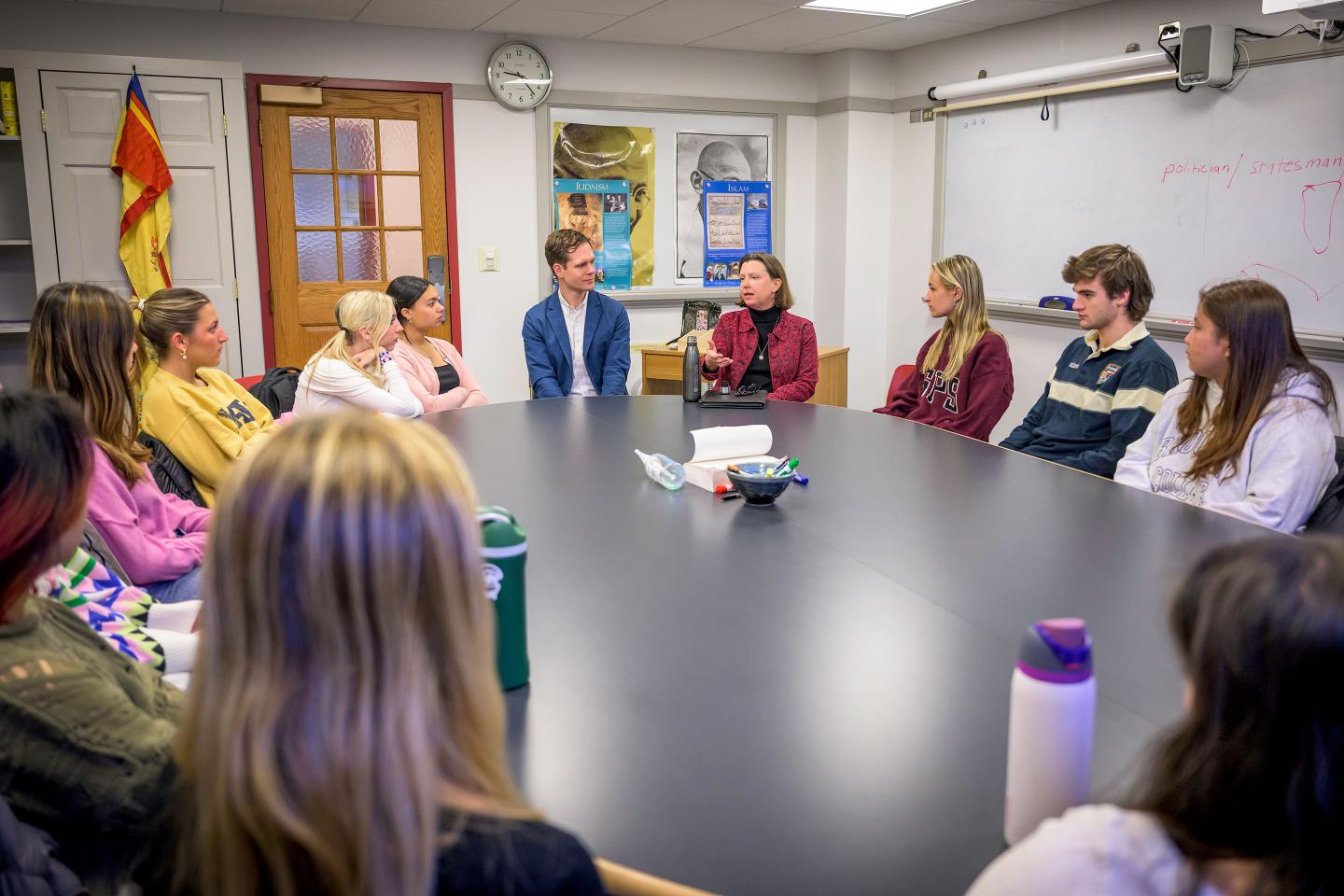
Lovett listens as campus guest the Rev. Dr. Rebecca Copeland speaks to his Speculative Fiction class.
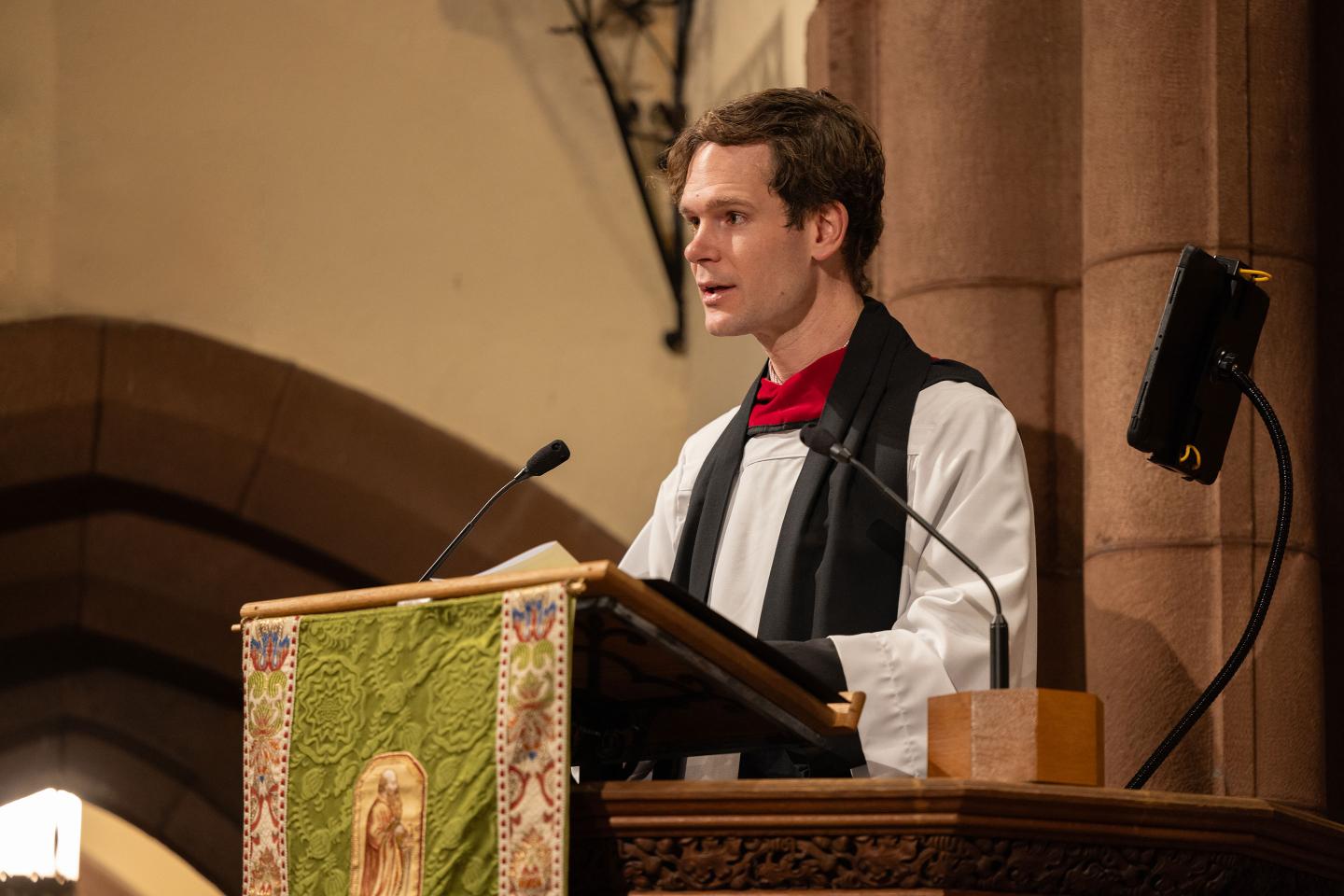
Lovett speaks during the SPS Veterans Day chapel service, 2023.
Coming to SPS in part represents the answer to a question Lovett had long asked himself: “What makes a good community?” After college, he worked in politics and public policy for two years with the idea of making an impact at the community level; it was when he was working toward his master’s in divinity at Boston University that he discovered school chaplaincy. “I saw youth ministry and working with young people as a form of community organizing. How do you use the best resources of the community to help support the formations of young people?” Lovett asks.
Lovett describes humanities classes as “team sports” that require students to work together, hear different perspectives and learn from the insights of others. In that regard, he says, humanities complements the chapel program. “The commitments of the School are to create an ethical community where all people are welcomed, are connected through our shared rituals and our shared observances and processes of meaning-making. … So our goal to incorporate and engage and invite together people of many traditions, to have that represented in the readings and songs, is front and center in creating that hospitable, engaging, interconnected environment,” Lovett says.
In class or at the pulpit, Lovett’s voice is welcoming and unhurried, every word given the same gentle emphasis. Around the Harkness table during his Speculative Fiction class, he encourages students to engage in discussion on the material or themes and allows their dialogue to guide the class. He offers encouragement and answers questions, and if he doesn’t have the answer, he says so: “I’ll do more reading on that and get back to you.”
We’re not a group of practitioners, we’re a group of scholars,” he adds. “There are many ways to think about this question; propose ideas and work to support them with imagination and evidence.”
The class that begins with the musical score to “2001: A Space Odyssey” ends with Lovett posing this question to the group: “What qualities of fiction are powerful enough to influence visions of the future and inspire change?” It’s an open query that invites exploration, fosters connectedness between students and leaves space for every perspective, a perfect example of the community focus Lovett brings to every aspect of his work at SPS.

